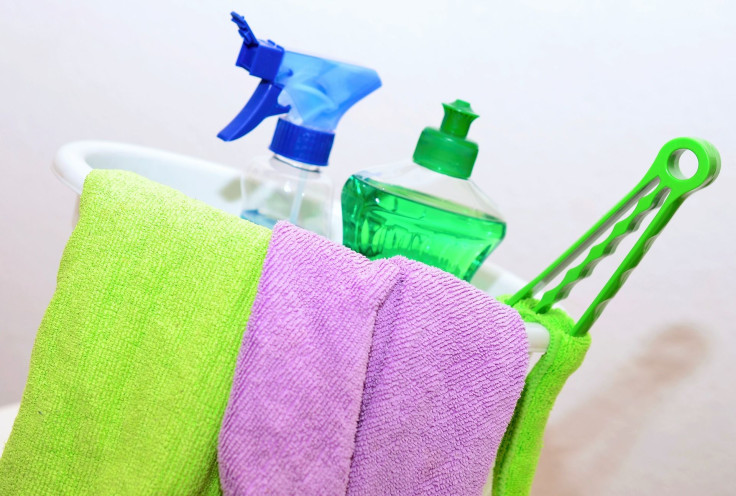Antibacterial Wipes Not Effective At Killing Germs, Scientist Says

For most of us, the idea that our kitchens are more germ-infested than our bathrooms is a hard pill to digest. So we go out and buy the most powerful disinfectants, the most advanced germ-killing sprays and the most potent antibacterial wipes.
But just how well are all these products doing to keep our kitchens clean?
Dr Clare Lanyon, a biomedical scientist from Northumbria University recently appeared on the BBC show Trust Me I’m A Doctor, to conduct an experiment to show just how effective wipes were in killing germs. Based on the tests, she found a "dramatic growth" of microbes in half a day after cleaning a kitchen surface with antibacterial wipes.
"Some bacteria can divide every 20 minutes so it doesn't take long for one cell to become one million cells - in fact it would only take around 6.6 hours," Lanyon told The Telegraph. She said that while it was important to keep a kitchen clean, going to extreme lengths to disinfect the area would not be of much help.
“You can't actually remove all bacteria and nor would we want to - exposing ourselves to everyday pathogens is good in keeping the immune system healthy and strong,” she said.
"The research shows you can quite quickly re-establish bacteria that we have in our homes anyway. You're never going to get your home sterile and clean - no way - and there are better things to be doing with your time.”
Cleaning up food and organic waste needs to be done on time to prevent spread of harmful germs but Lanyon claims it is a “redundant exercise” to try to keep wiping down an already-clean surface with antibacterial sprays.
“The minute you walk around the kitchen you're shedding bacteria and fungi into the area again and it's just recolonizing.
She said her research has found that a number of antibacterial cleaning products were not as effective as using soap and water.
"Antibacterial chemicals are effective – but we use them too much and they persist in the environment," said Professor Peter Collignon from the Australasian College of Infection Prevention and Control. “In most situations hot soapy water will do the job along with elbow grease – it's the vigorous physical scrubbing that helps remove bacteria. Alcohol hand rubs are useful when someone is sick or when you're travelling. Vinegar is a useful disinfectant and like alcohol is biodegradable."
However, surfaces that are used to clean raw meat and fish should be scrubbed down with hot water and soap to prevent the spread of salmonella.
The kitchen item with the most number of germs on it happens to be the one we use to clean with. Sponges and dishcloths contain a large variety of bacteria and doctors suggest the best way to keep them clean is by drying them properly after use and soaking them in bleach once a week.
A study published in Scientific Reports in 2017 identified that while microwaving a sponge will help kill the weaker germs, the stronger ones survive and continue to multiple.
“When people at home try to clean their sponges, they make it worse,” said Markus Egert, a microbiologist at the University of Furtwangen in Germany and one of the study’s authors. He too agreed that a better alternative to microwaving a sponge is to wash it with hot water, detergent and bleach.



























